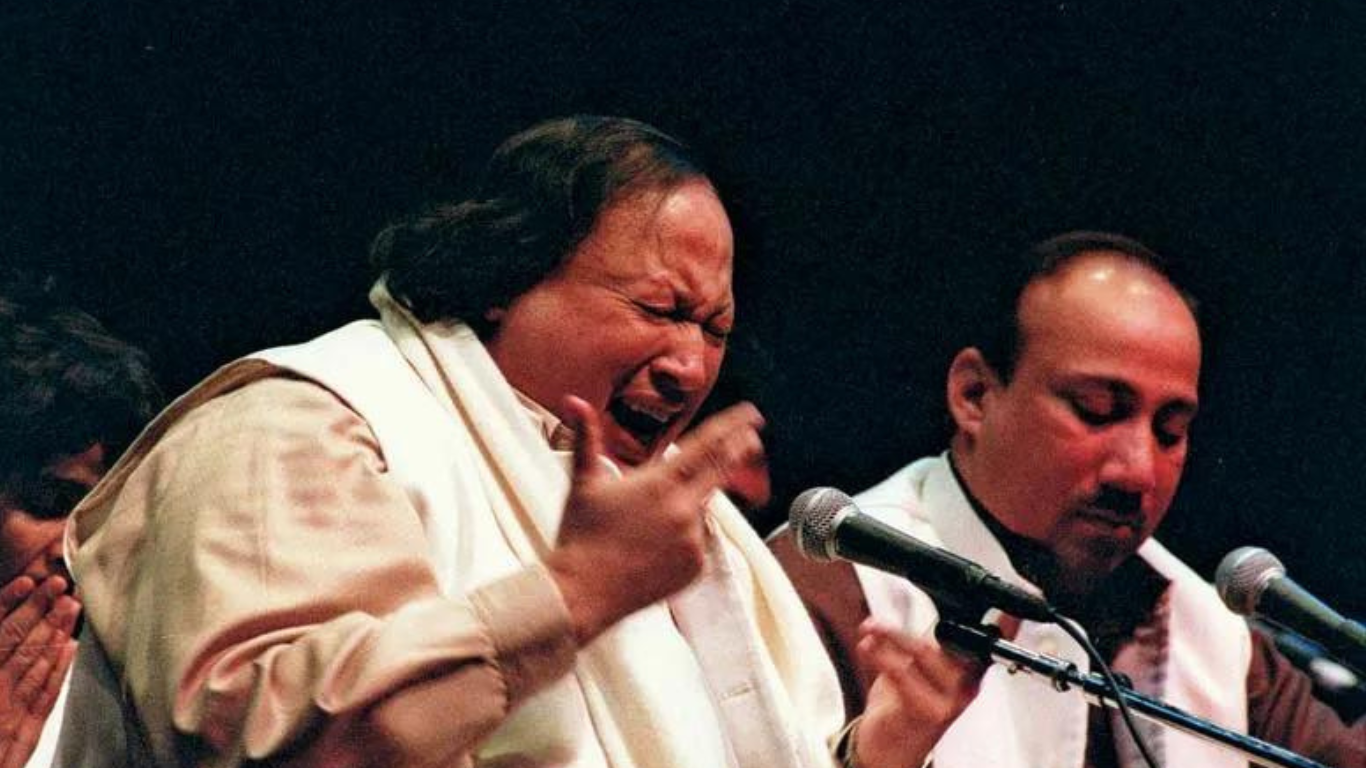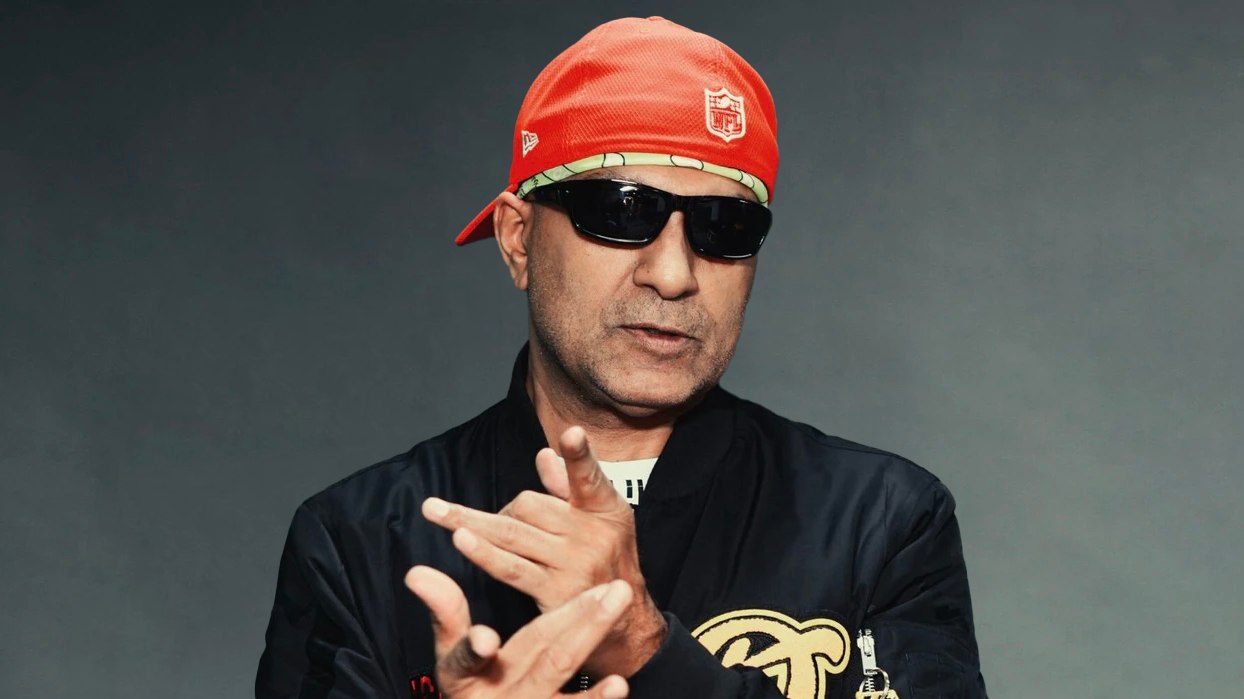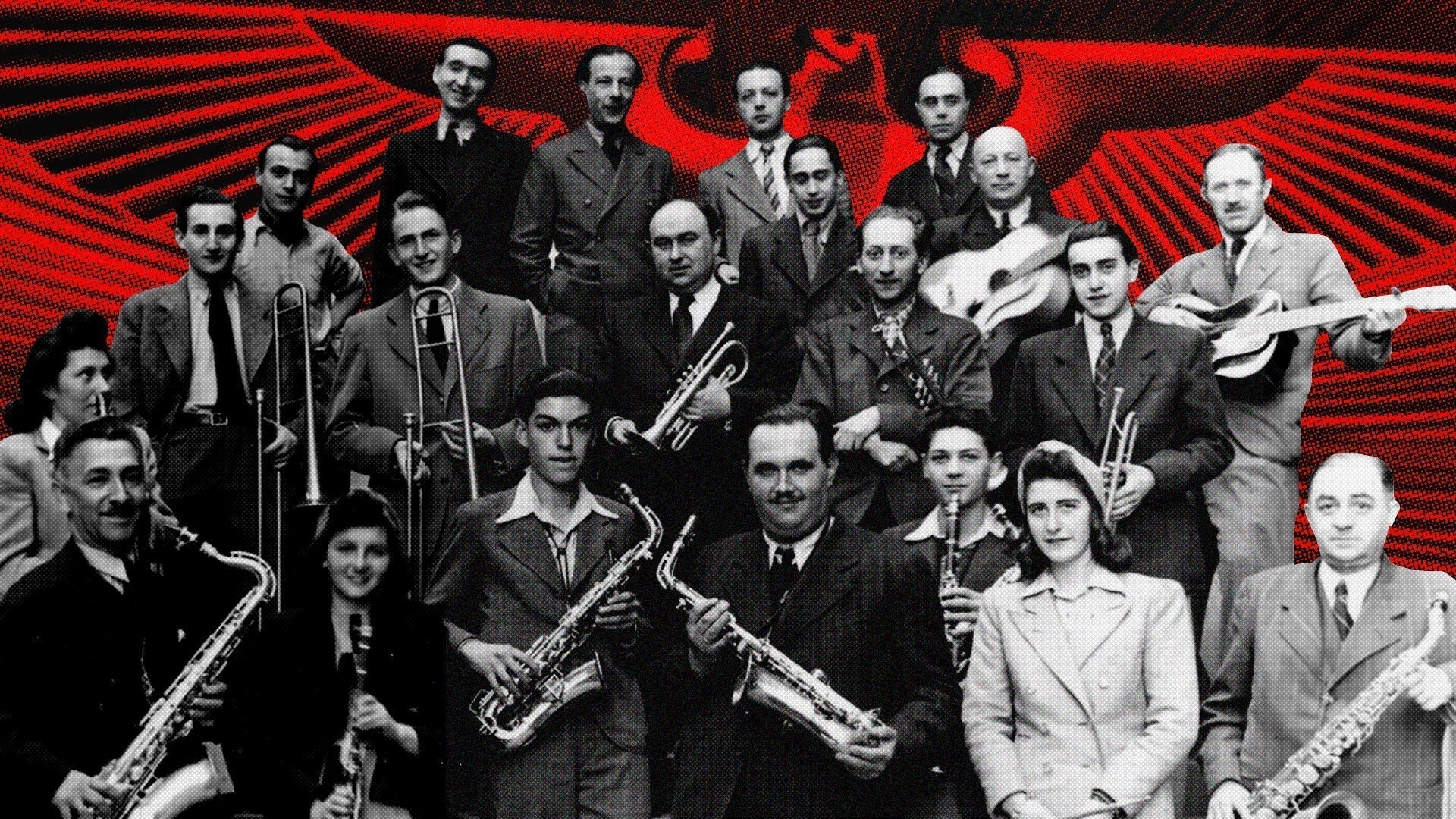How We Almost Missed Out On Nusrat Sahab's Music

Imagine a world where Nusrat Fateh Ali Khan, the Shahenshah-e-Qawwali, became a doctor instead of a musician. It almost happened!
Pervez Fateh Ali Khan was born in Faisalabad, Pakistan, on October 13, 1948 - the first boy after four sisters. Fondly called Paiji, legendary musicians like Bade Ghulam Ali Khan and Lal Khan visited the family to celebrate his birth. Even as a baby, Paiji showed a hint of his future plumpness.
As Paiji grew, it became clear that he was no ordinary child. One day, a Sufi friend suggested changing his name to “Nusrat,” which means ‘the Path to Success.’ The family liked the idea, and that’s how he got his new name.
Nusrat’s family had a 600-year-old tradition of Qawwali, but his father initially wanted him to pursue a more conventional career, like medicine or engineering - because musicians did not get much respect in his society. Fate had different plans.
His father kept Nusrat away from music, but he couldn’t resist; he secretly attended his father’s music lessons and even played the harmonium when no one was looking.
Things changed when a famous musician, Munawar Ali Khan, needed a tabla player, and Fateh Ali Khan recommended Nusrat. Munawar was amazed by his talent, marking the turning point in Nusrat’s life.
Fateh Ali Khan realized his son’s incredible potential as a musician and decided to nurture it. He taught Nusrat the tabla, harmonium, and the art of singing. Nusrat Sahab was a natural. His voice was magical, with an extraordinary range, texture, and intensity.
Nusrat’s music was a spiritual and emotional journey, extending beyond his performances; it was a message of love, devotion, and longing for the divine. He brought the depth of Sufi music to the world stage, breaking cultural boundaries and connecting people to something greater.
In his own words, “Achhi Soorat Ko Sawarne Ki Kya Zaroorat Hai, Saadgi Me Bhi Qayamat Ki Ada Hoti Hai” (Why embellish a beautiful face? Even in simplicity, there is a touch of the divine).
Nusrat’s music had the power to heal not bodies, but hearts.
Click Here To Read More:






Comments